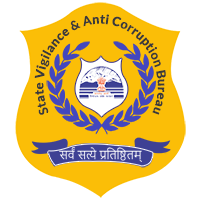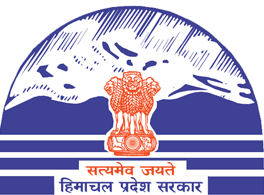FAQs - Frequently Asked Questions
When and why it was necessary to set up the Himachal State Vigilance?
Himachal State Vigilance & Anti-corruption Bureau was created in the year 1965 as an “Enforcement Organisation” in order to enforce various control orders and enquire into cases of corruption amongst the staff of various departments. Later in the year 2006 the said Organisation was reorganised and its name was changed to “State Vigilance & Anti-corruption Bureau” as it was felt necessary for expanding the above organisation in order to prevent leakages of public revenue and evasion of taxes.
What are the steps taken by the Vigilance department to minimize corruption?
The steps taken by Vigilance and Anti-corruption Bureau to minimize corruption are as follows:-
• To conduct raids on specific complaints to trap corrupt officials and touts taking bribe red handed.
• To mount surveillance on the basis of specified or general information against officials/departments dealing with public.
• To conduct enquiry into complaints against Government/Public servants and recommend registration of cases under P.O.C. (Prevention of Corruption) Act, HPPSCP Act if findings so warrant.
• To recommend departmental action against delinquent officials, on the basis of findings of enquiries
• To study problems of systematic corruption and suggest measures to control such systematic corruption.
The Anti-Corruption Bureau mounts surveillance on the basis of specific or general information against a specific employee or a public dealing department.
What type of cases are dealt by HP State Vigilance Bureau?
Mostly three major types of cases are dealt by the State Vigilance.
(a) Trap Case:-This is a case where a complainant lodges written complaint regarding demand of illegal gratification by any public servant. After being satisfied about genuineness of the complaint, Vigilance officials along with complainant and official witnesses proceed to the appointed place where the public servant has decided to accept the demanded amount. The public servant is trapped while accepting the demanded tainted bribe money from the complainant. In this case presence of the complainant or his representative is a must.
(b) Disproportionate asset cases:-Whenever, any public servant acquires property beyond his means he is said to have assets disproportionate to his known sources of income. “Known sources of income” means income received from any lawful source and such receipt has been intimated in accordance with the provisions of any law, rules or orders for the time being applicable to a public servant. In these type of cases, identity of the informant is kept secret and is never exposed at any stage of the inquiry, investigation or trial. Appropriate rewards are given to the informants where such information so furnished leads to detection/seizure of illegal Properties and registration of criminal cases against corrupt public servants.
(c) Miscellaneous cases:- This category of cases cover a wide variety of corruption by public servants like show of undue favour to a particular party in award of contracts, purchase of items at higher rates, misappropriation of Government fund by showing false fabricated purchases, forged documents, illegal appointments, execution of substandard work etc. thereby causing undue pecuniary advantage without any public interest. In such cases also the identity of the informant is kept secret and not exposed at any stage of enquiry, investigation or trial.
What are various ways to lodge a complaint?
Informant/complainant may lodge written petition giving details of corruption practices of a corrupt public servant personally at Vigilance Police Stations at District Level or at Vigilance Headquarter at Shimla. If he wishes, He can also send his petition by post/ website: www.hpsvacb.hp.gov.in / Vigilance Bureau Facebook Page / Toll Free Telephone Number (1064) / Control Room no. 0177-2629893 or on WhatsApp No. 89887-00100 etc.
Whether the identity of the informant is kept secret?
Vigilance Department keeps the identity of the informant secret in almost all cases. However in trap cases only, complainant or his representative is required to submit a report against a public servant in order to prosecute him for demanding and accepting illegal gratification.
How does the Vigilance department Create awareness against corruption?
To create awareness amongst public against corruption, the departments of Govt. of HP observes Vigilance Awareness Week every year. The dates of Vigilance Awareness Week are decided by the Central Vigilance Commission. People are encouraged to come forward with their grievances. The following actions are taken during the week:
• An advertisement is issued by HP SV&ACB in all leading Newspapers in HP, inviting public to contact ACB, in case any government official demands bribe.
• A large number of leaflets containing message and important telephone numbers are printed and sufficient number of leaflets and banners sent to various departments for displaying those at notice boards and the points in their office for public awareness. Vigilance Department receives several telephone calls giving information which are suitably responded.
• Telephone numbers, E-mail I.D., WhatsApp complaint Number of ACB is communicated to all HODs to display on their notice board. Most of the departments displays telephone numbers of ACB advising public to contact these numbers in case any official demands bribe.
How does the department identify corrupt government officials?
To identify the corrupt Govt. officials, the Bureau take recourse to discreet watch, surveillance, open source information and complaints received from various sources, sometimes even from anonymous and pseudonymous complaints having specific information. This is followed by surveillance or specific enquiries.
What type of surveillance is done over departments?
When the Bureau receives some information regarding corrupt practices prevalent in some Govt. Deptt. or against any particular officials, SV&ACB mount surveillance over their activities to collect the evidences to link the suspect with the crime. Surveillance is mounted discreetly. After collecting sufficient evidences, which could crystallize the information a report is prepared and further action is initiated.
How does the Vigilance department deal with the cases of corruption in their own department?
While posting the officers in Vigilance & Anti-Corruption Bureau, care is taken to short list only those officers who have unblemished service record. Secondly, supervisory officers maintain strict vigil over the activities of the staff working in Anti-Corruption Bureau. The reports of the Enquiry officers and Investigating Officers are evaluated with the help of low officer and suspect findings, if any are viewed seriously and suitable departmental action taken.
What is trap? Who provides Money for laying trap?
It is a chalked out plan which is designed and executed to catch a corrupt public servant while demanding/ accepting illegal gratification from a person in order to do or get his official work done. Whenever a complainant approaches ACB with a complaint of demand of bribe by any Govt. Official, a team comprising officials of ACB along with a witness, after following a prescribed legal procedure, lays trap upon the alleged officials to catch him red handed while accepting bribe. If the raid/ trap materializes, a case under relevant sections of POC Act is registered against the tainted official. On completion of investigation, the official is prosecuted in the Special court, designated for P.O.C. Act cases.
Bribe amount which is demanded by the corrupt public servant is arranged and brought by the complainant which is utilized during laying of trap and same is reimbursed after successful execution of trap at the request of the complainant to SHO, PSs of SV&ACB.
Can Vigilance Department suo-motto take up trap case?
In order to initiate trap against a public servant, there should be a complaint from any person from whom bribe is demanded. Vigilance Department cannot take up trap case suo motto.
The Vigilance department generally deals with the big corruption cases. How does the department help the citizens who face corruption at every step of their daily life?
Vigilance Department not only deals with corruption cases of big magnitude but it also frequently takes action against those officials who are working at the cutting edge level like subordinate Police officers, Junior Engineers, Clerks and touts etc. The Bureau have extended relief to the common people by registering cases against touts operating in various public-dealing departments, particularly, Transport, PWD, Forest and Revenue Departments.
Whose permission is required for registration of cases against senior State Level Officials ( HPAS, HPS, HPFS etc) and All India cadre officers i.e (IAS, IPS, IFS etc )?
Prior to enquiry / registration of cases against State level officers and All India Cadre Officers, permission from the State Govt. and Central Govt. is mandatory if the allegations involved are concerning any decision taken or recommendations made by such public servant in discharge of his official duties. Though Central Bureau of Investigation has been set off to function as Anti- Corruption Organisation mainly against Central Govt. officials, State Vigilance can take up such complaints, initiate action and subsequently transfer the cases to the Central Agencies for its finalisation in case of AIS cadre officers..
How long does it take to present the case in criminal court and what is the procedure followed for that?
After the registration of case under POC Act, the Bureau collects all the relevant evidences like Forensic Science Lab. Reports, Prosecution Sanction, statements of witnesses against the delinquent official and after obtaining the legal opinion of Prosecution Deptt., the accused official is charge sheeted for judicial verdict. There is no prescribed time frame for the finalization of investigation of the case but it depends on the nature of delinquency, availability of related records from the concerned department and cooperation of witnesses. A red-handed trap case can be finalized in one year if prosecution sanction is received in time. Investigation in corruption cases takes much longer.
The lawyers to deal the cases of Vigilance department are appointed from outside or are they employees of the department?
The Public Prosecutors who present the Anti-Corruption cases in Hon’ble courts during trial are working under Deptt.. of Prosecution which is an independent department of HP Govt. Even in Hon’ble High Court our cases are presented by the Advocate General, who also function independently.
What are the general functions of Central Bureau of Investigation, State Vigilance and State C.I.D, Crime Bureau in brief?
Central Bureau of Investigation is primarily an Anti-Corruption Agency under Central Govt. . It also investigates certain special category of offences under Indian Penal Code and big scams, as when directed by the Government and Hon’ble Court. Whereas, State Vigilance being the Anti-Corruption Agency of the state Govt., it enquires/ investigates offences mainly under Prevention of Corruption Act, 1988. Besides it also takes up scam cases relating to HPPSCP Act, Evasion of taxes, certain offences under Indian Forest Act, NDPS Act, WLPA etc. But, State CID, Crime Bureau investigates only special category of offences under Indian Penal Code, Bank fraud cases and other Economic offences as directed by the Government.



